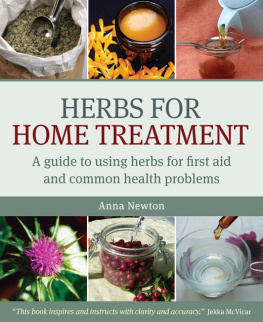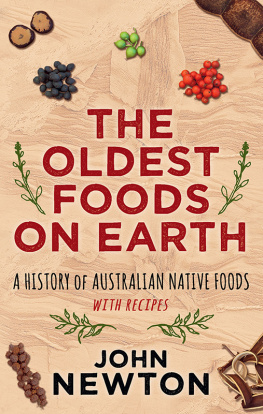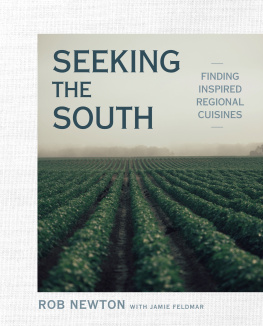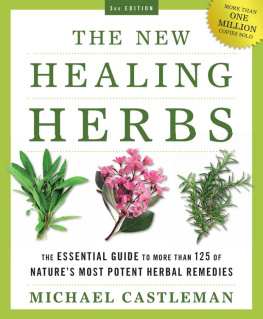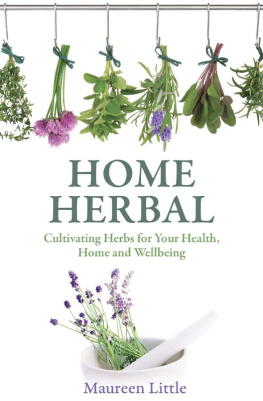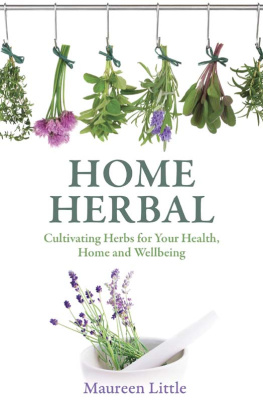Newton - Herbs for Home Treatment
Here you can read online Newton - Herbs for Home Treatment full text of the book (entire story) in english for free. Download pdf and epub, get meaning, cover and reviews about this ebook. year: 2009, publisher: UIT Cambridge Ltd., genre: Children. Description of the work, (preface) as well as reviews are available. Best literature library LitArk.com created for fans of good reading and offers a wide selection of genres:
Romance novel
Science fiction
Adventure
Detective
Science
History
Home and family
Prose
Art
Politics
Computer
Non-fiction
Religion
Business
Children
Humor
Choose a favorite category and find really read worthwhile books. Enjoy immersion in the world of imagination, feel the emotions of the characters or learn something new for yourself, make an fascinating discovery.
Herbs for Home Treatment: summary, description and annotation
We offer to read an annotation, description, summary or preface (depends on what the author of the book "Herbs for Home Treatment" wrote himself). If you haven't found the necessary information about the book — write in the comments, we will try to find it.
Herbs for Home Treatment — read online for free the complete book (whole text) full work
Below is the text of the book, divided by pages. System saving the place of the last page read, allows you to conveniently read the book "Herbs for Home Treatment" online for free, without having to search again every time where you left off. Put a bookmark, and you can go to the page where you finished reading at any time.
Font size:
Interval:
Bookmark:
HERBS FOR
HOME TREATMENT
HERBS FOR
HOME TREATMENT
A guide to using herbs for first aid
and common health problems
Anna Newton

First published in 2009 by
Green Books
Foxhole, Dartington
Totnes, Devon TQ9 6EB
www.greenbooks.co.uk
First published in digital formats 2010
Anna Newton 2009
All rights reserved
Design by Stephen Prior
Photographs Anna Newton
and Neil Clarke LRPS
DISCLAIMER: This book is intended as an informational guide. The remedies, approaches and techniques described herein are meant to supplement, not to be a substitute for, professional medical care or treatment. They should not be used to treat a serious ailment without prior consultation with a qualified health-care professional. Neither the publisher nor the author assumes any liability for any injury or damage to person or property arising from this publication.
Print format ISBN 978 1 900322 42 3
PDF format ISBN 978 1 907448 76 8
ePub format ISBN 978 1 907448 77 5
Contents
Acknowledgements
I would like to thank all my patients who have given me feedback about their treatment; Katie, my best young patient who took herbal medicine although it was yuck; all my teachers of herbal medicine who inspired me for life; my herbalist colleagues for sharing their experience; my family for being willing to try my unusual cures; my mother for introducing herbs into my life; my father for instilling a dose of healthy scepticism in me towards science and non-science alike; Neil Clarke LRPS for the photographic input; Monica French for her stylistic advice; my editor Amanda Cuthbert for the meticulous improvements to the book; Stephen Prior for his brilliant design; Alethea Doran, my copy-editor, for her amazing attention to detail; and the whole team at Green Books for their contributions to the final product.
To Richard
Introduction
This book is a simple guide to self-medicating with medicinal herbs. It deals with non-emergency first-aid situations and everyday ailments that people commonly treat with over-the-counter medicines. It focuses exclusively on using herbs as medicines and it is based on first-hand experience. All the advice you will find in this book has been tested in practice on my family, friends and patients. The main purpose of this book, therefore, is to share the practical knowledge that I have accumulated over the last eighteen years.
My confidence in using herbs for self-treatment stems not only from my experience as a herbalist I was lucky enough to be brought up by a mother who was very knowledgeable about herbs and knew many home prescriptions for treating a variety of common problems. I have vivid memories of taking her remedies as a child: bitter chamomile infusion for tummy ache; tasty comfrey syrup for coughs; alder leaf plaster to heal a cut on a finger. These simple remedies worked every time, and as I grew older I acquired a deep respect for the healing powers of plants.
Herbs are the most natural form of medicine. Our bodies evolved to digest plants well and absorb all the nutrients. It follows that herbal remedies, being of plant origin, are easy for our digestive system to break down and assimilate. In fact, many food items used in appropriate amounts, for example garlic or thyme, become effective medicine. Unlike modern pharmaceuticals, which are normally composed of a single synthetic chemical, herbs contain hundreds of individual compounds. Herbalists believe that this biochemical complexity of plants matches the complexity of our bodies, and that is one of the reasons why whole-plant preparations can work very well in comparatively low dosages.
For centuries herbal medicine has been based on long-established patterns of use derived from empirical observations. Nowadays there is also plenty of scientific research to back up traditional use, and you will find useful references at the end of this book.
There are many advantages to being able to medicate with herbs: you avoid the potential side effects of many common pharmaceuticals (for instance, many people are allergic to Paracetamol), herbs are cheap and easily available (you would be surprised how much medicinal potential there is in the average spice rack), but most of all you will be helping your body to heal itself in a safe, natural way and not just suppressing symptoms.
At home I regularly use five medicinal herbs as teas, two types of skin ointments, about three to four essential oils and three to four specific blends made up from a few other tinctures. That is all. I do not need a full-blown apothecary to treat the majority of common health problems, and neither will you. The beauty of medicinal plants is that they are incredibly versatile: the same herb can be used for a very diverse range of problems. Take common chamomile: nausea during pregnancy, infant colic, indigestion, toothache, puffy eyes and acne are just a few cases where it could possibly be used. I have relied on my herbal first-aid kit on holidays in Britain and Europe as well as in the remote areas of Bhutan and Mongolia, and it fitted into a small plastic box. This book will help you to assemble your own individual herbal medicine chest to use at home, and a small first-aid kit to use when away.
All the remedies recommended in this book have been used by me and my immediate family on many occasions, and I do not advocate anything that I have not tried first hand. The treatment options that follow are all based on my personal experience, and have proved positive and successful over and over again. As a result, this book offers you a well-tested selection of effective remedies that will be appropriate for most families. I make it clear when you should seek specialist advice, as some conditions, such as eczema, although very common, are quite complex and tricky to treat by yourself.
The book is structured by the various systems of the body and their associated ailments, and my advice focuses on a few select herbs that can be used for several different systems. You will come across the same herbs in many chapters, but in each case a different set of actions and uses is described, relevant to that particular system.
This book aims to give you confidence in using herbs in preference to conventional over-the-counter drugs. If you are a health-conscious person, concerned with the quality of the food you eat and the impact of the environment on your familys health, this simple guide is for you: it will show you how to add another healthy option to your lifestyle the option of natural medicine.
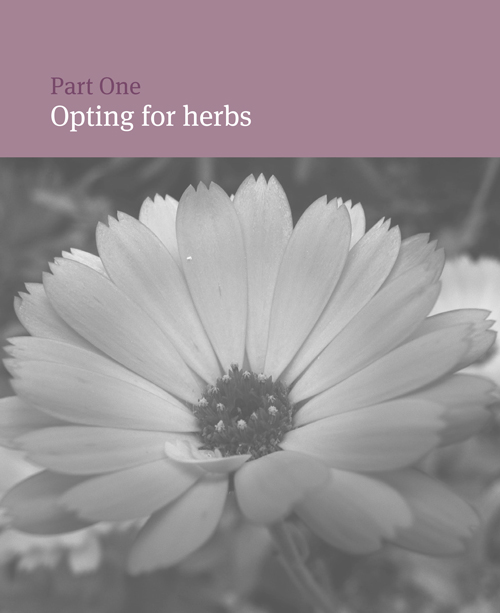
Chapter 1
Why herbs?
Herbs have been used as medicines around the world for millennia: they were the original medicine in all cultures and major civilisations. It is sad that, in many Western countries, the twentieth century saw herbal medicine being degraded to a complementary or alternative therapy, for it deserves a place in mainstream health care. Indeed Eastern countries, such as China, recognise the value of traditional medicine and incorporate it into their health care alongside their orthodox medicine.
So why should we go back to using herbs medicinally?
EFFECTIVENESS
In many instances herbs are as effective as, and sometimes more effective than, conventional pharmaceuticals in treating many common health problems. Did you know, for instance, that clinical trials have shown St Johns wort to be more effective than SSRI drugs in treating mild to moderate depression? Medicinal plants can often treat problems that defy modern medicine, including the common cold and chronic fatigue syndrome. They are equally applicable for ailments that arise suddenly, for instance heartburn, and for long-standing conditions, such as joint pain.
Next pageFont size:
Interval:
Bookmark:
Similar books «Herbs for Home Treatment»
Look at similar books to Herbs for Home Treatment. We have selected literature similar in name and meaning in the hope of providing readers with more options to find new, interesting, not yet read works.
Discussion, reviews of the book Herbs for Home Treatment and just readers' own opinions. Leave your comments, write what you think about the work, its meaning or the main characters. Specify what exactly you liked and what you didn't like, and why you think so.

